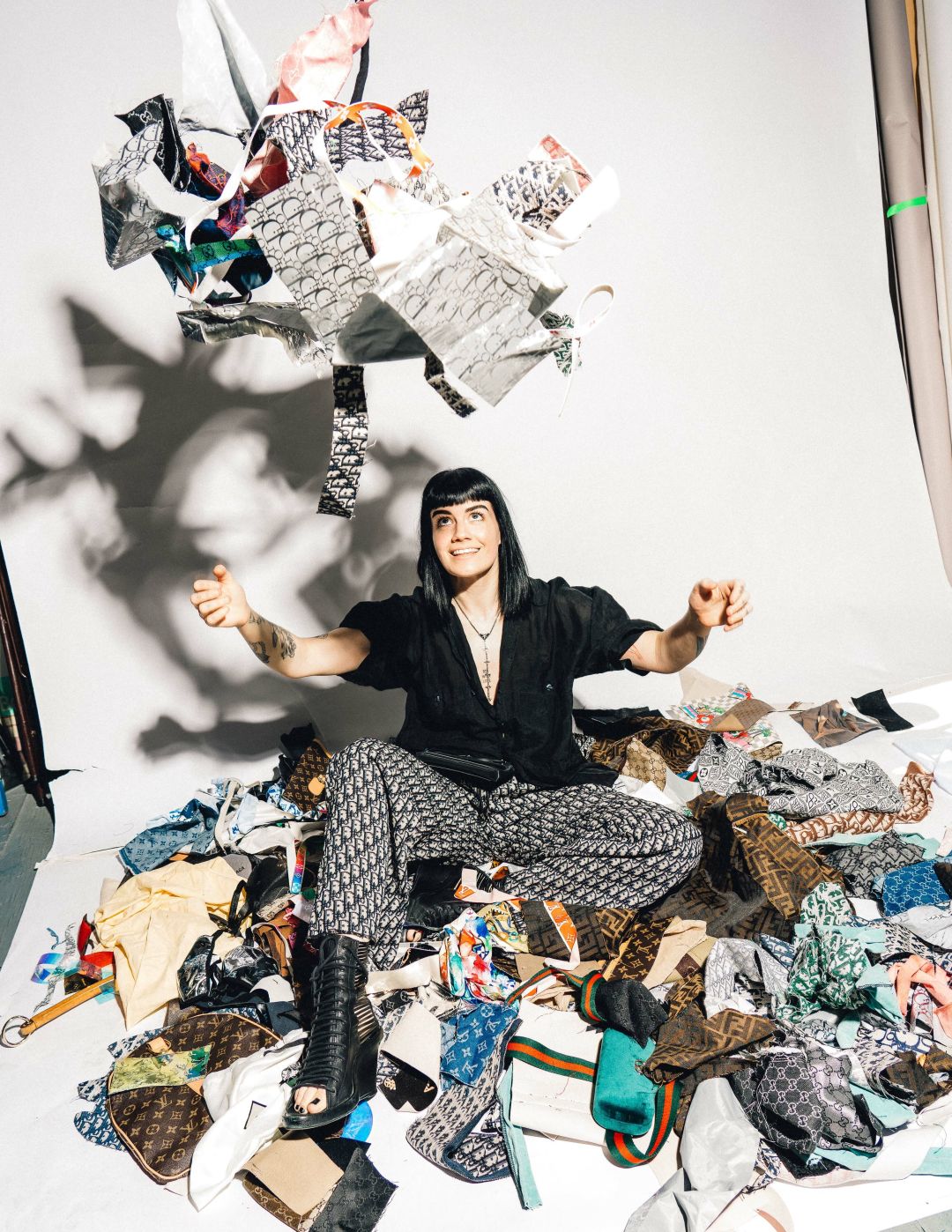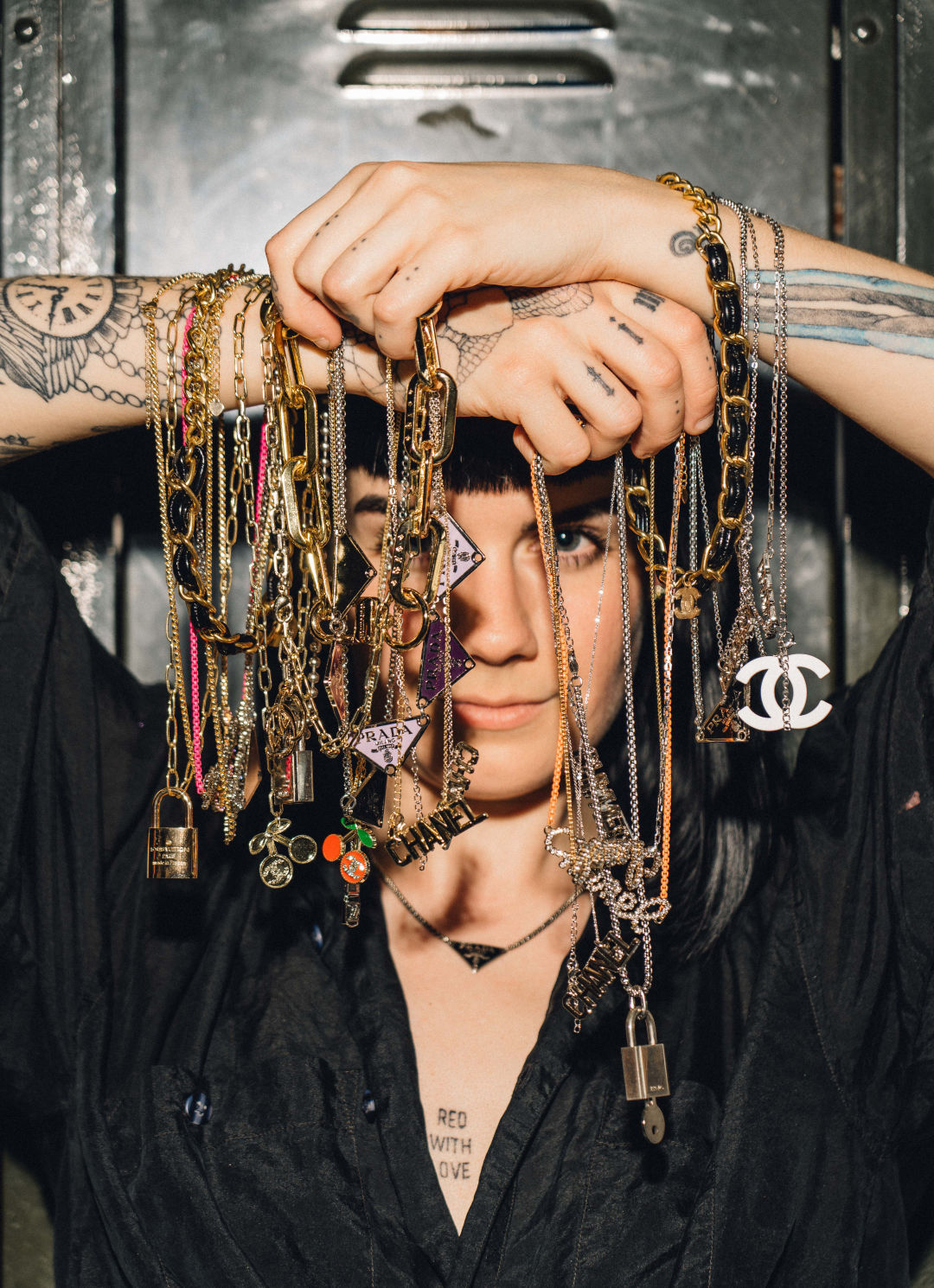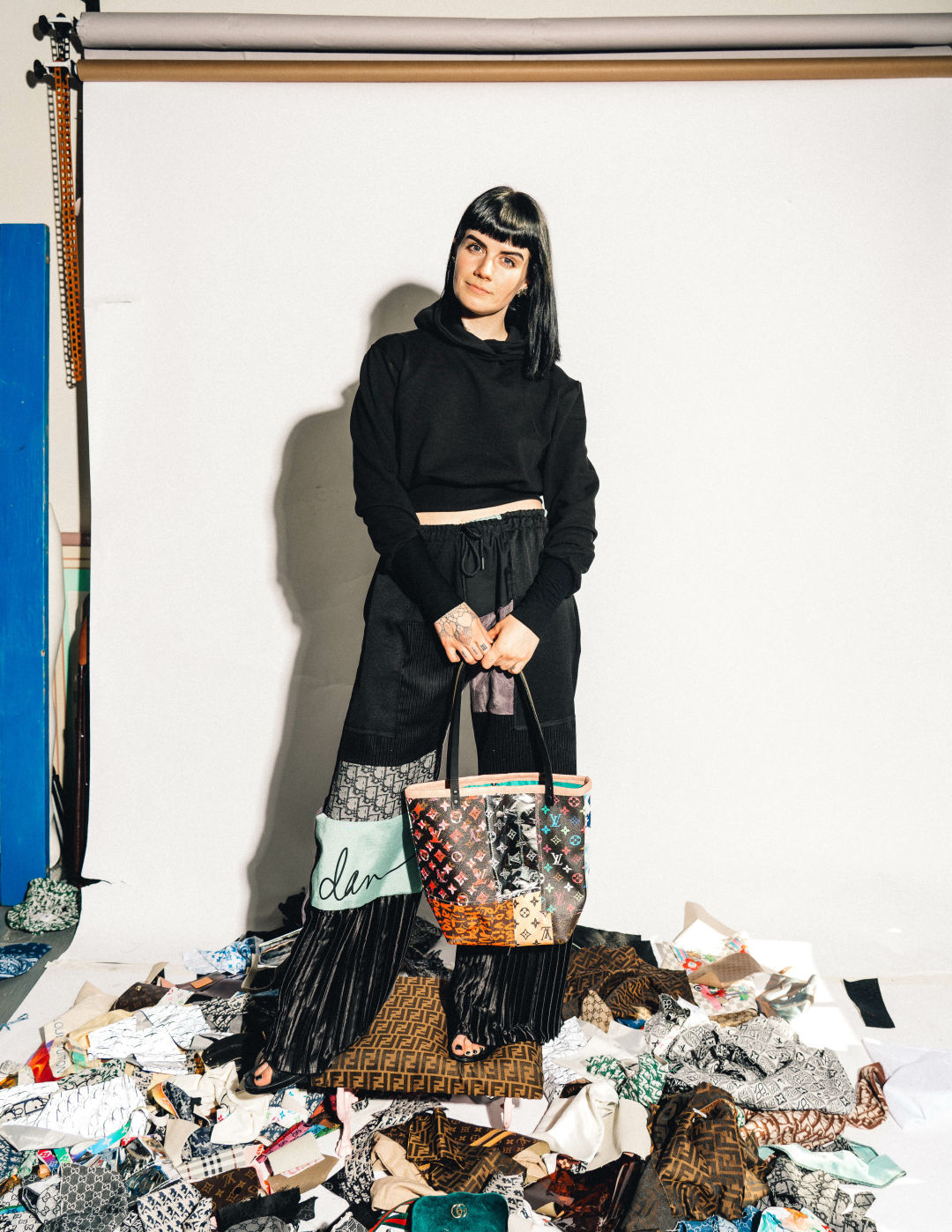
It’s a problem straight from an early-aughts fashion magazine. You’re desperate for a Juicy Couture necklace—like, everyone at your school has one!—but your parents totally won’t go for it. Do you:
A. Give up—maybe they have a point about not needing expensive jewelry.
B. Resort to begging—your reputation is worth more than your dignity.
C. Take apart your Juicy key chain and turn it into a necklace—resourcefulness is next to coutureliness.
For Dan McLean, the decision was simple. She wore that key chain necklace until the Juicy logo wore off.

Now, the Seattle fashion designer makes money selling pieces born of that formative experience: random thrifted bags adorned with emblems from big fashion houses like Yves Saint Laurent; vintage button-downs cropped and enhanced with a Dior elastic waistband. She calls it “bootleg,” but these garments are a far cry from cheaply made, back-alley counterfeits. No one would mistake a pair of sweat shorts patched together with a Fendi dust bag for an original, or even for a dupe. And McLean wouldn’t want them to. It’s “fan art,” she says. The fashion version of recognizable characters stylized by admirers in a way that feels familiar but looks almost entirely new.
McLean’s not the first artist to work in the space between inspiration and duplication. Legendary Harlem fashion designer Dapper Dan gained notoriety during the ’80s and ’90s for his couture bootleg, beloved by clients like Salt-N-Pepa and LL Cool J. Lawsuits forced him to shutter his boutique, but in 2018, after Gucci copied one of his designs themselves, Dapper And formed a partnership with the fashion house.
People who attempt to cheaply recreate existing designs still face litigation and arrests. But when friends wear Dan McLean pieces to their jobs at the brands she gleans inspiration from, everyone wants to know how to get their hands on one. “I think that the fashion houses are flattered” by bootlegs, McLean says, “because Dapper Dan did it.”

Re-using logos from luxury powerhouses is one thing. But in a world where everyone from Instagram followers to the designers at Fashion Nova can copy designs with few consequences aside from public shaming, many artists are understandably defensive of their work. A dupe is a dupe, with little room for nuance. McLean has a more relaxed take on the topic: Though she balks at big corporations blatantly lifting her designs, she’s almost enthusiastic about other small designers mimicking her work. “If you got an idea from me, and we can both make money from it, let’s go.”
It’s an attitude she attributes to her mom, who frequently reminded McLean in her middle school years that copycats “just think that your style is really cool.” But it’s also one that arises from McLean’s goals for her work in general: “I don’t ever want to get famous for it.” She wants to chip away at fast fashion and make clothing that’s environmentally friendly “without shoving it down people’s throats.” She wants to make it size-inclusive and gender-inclusive. She wants to save unwanted garments from winding up in the landfill, one logo at a time.
If people look at Dan McLean and decide that they want to do those things, too, all the better. There are plenty of Juicy key chains to go around.